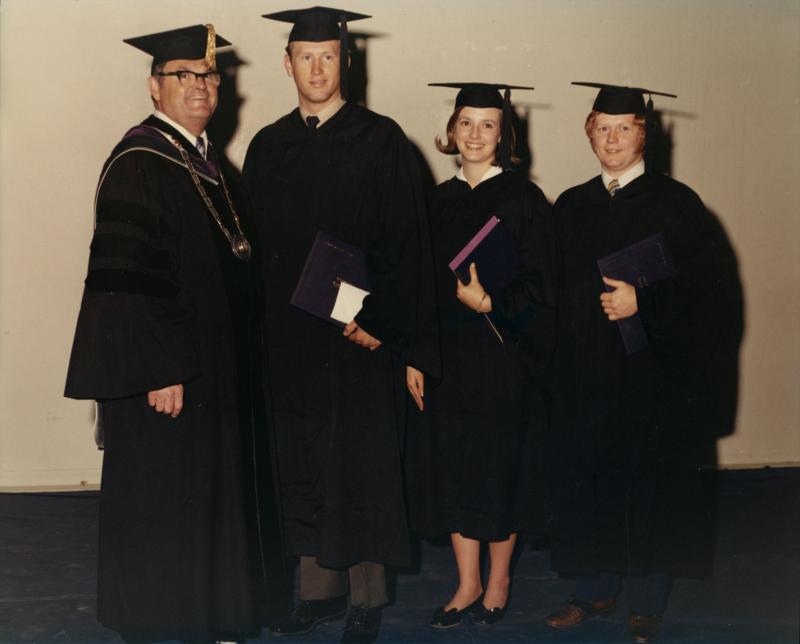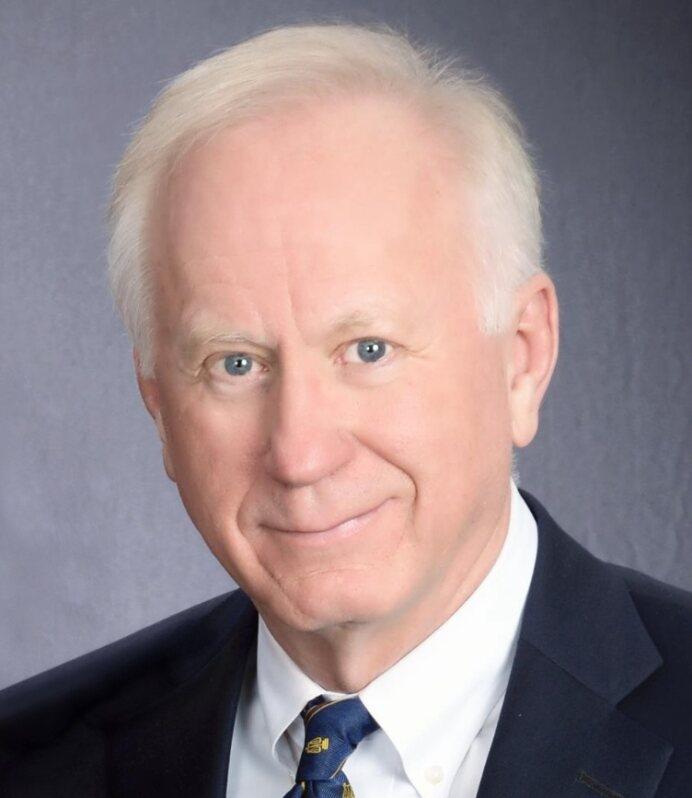Oral History Interview with Judge Joe Anderson
The photo above depicts Joseph (Joe) Anderson in Clemson's 1972 Commencement Program when he graduated with a degree in Political Science with a minor in History. He received the Norris Medal from President Edwards, which is awarded yearly to the most well-rounded student of a graduating class ever since 1908. After receiving his degree from Clemson University in 1972, Joe Anderson went on to get his law degree at the University of South Carolina. Anderson then returned home to practice law alongside his father at their private practice until his introduction to politics in 1980 as a member of the South Carolina House of Representatives.
President Ronald Reagan nominated Anderson to be a U.S. District Court Judge for the District of South Carolina in 1986, serving as Chief Judge from 2000 to 2007 and assuming senior status in 2014. At his appointment, he became the youngest federal judge in South Carolina history.
- Paige Magoto begins the interview by asking Joe Anderson for his consent to be recorded and for his personal details.
- Joseph Anderson was born on November 16, 1949, in Edgefield, South Carolina, a small town along the Savannah River.
- Joe grew up in Edgefield and participated in various extracurricular activities, including football, Boy Scouts, and creating a neighborhood baseball field.
- He always intended to go to law school and become a lawyer, following in the footsteps of his father and grandfather, who were also lawyers.
- Joe attended Clemson University from the fall of 1968 to the spring of 1972, majoring in political science and minoring in history.
- He was drawn to political science as it was a new major at Clemson and believed it would be a good fit for his future law studies.
- Joe recalls his first introduction to political science at Clemson and his initial impressions of the department, particularly the professors Jack Tuttle, Walt Owens, and Horace Fleming.
- He had a memorable research paper experience with Horace Fleming, who later became a close friend and mentor.
- After law school, Joe returned to Edgefield to practice law with his father and later joined by one of his brothers.
- He ran for the state legislature in 1980 and was successful on the first ballot, representing Edgefield and part of Aiken County.
- Joe served in the General Assembly until 1986, when he was nominated by President Reagan to be a federal district judge.
- He was confirmed and began his work as a federal district judge in December 1986, a position he still holds.
- Joe emphasizes the lasting friendships and connections he made at Clemson, including through his fraternity and other social networks.
- His brother Ben Anderson worked at Clemson for 28 years as the legal counselor and passed away from lung cancer in 2015.
- Joe has observed the significant changes and developments at Clemson over the years, including new architecture, programs, and athletic success.
- He has continued to interact with Clemson graduates and alumni through various professional and social networks, including the Second Century Society in Columbia.
- Joe reflects on the strong Clemson brand and its influence in various fields, including law, and the need for more Clemson graduates to pursue legal careers.
- He mentions the pre-law society at Clemson and its efforts to support students interested in law school, noting its ups and downs over the years.
- Joe expresses his pride in the political science department's achievements and its continued relevance and success.
- He concludes by discussing the potential for interdisciplinary studies in policy and health sciences at Clemson, highlighting the department's strong foundation and future possibilities.

